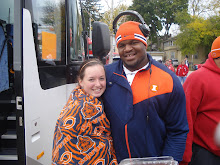Today’s rapid growth of technology in the classroom would lead most to believe it is a sure fire way of learning. The authors of “Computers and Technology” and “Who Needs Computers?” would disagree. Clifford Stoll and Richard Ohmann are skeptical about incorporating technology into learning. Both authors believe in a more traditional way of learning.
Stoll and Ohmann believe computers make plagiarism easier. The authors say this is because copying and pasting from an internet site is much easier than copying out of a book or an essay that is in paper form. Both authors also argue that computers take away from reading and libraries. When is the last time a student used a book as a source of information for a school project or paper? Students find all the information they need on the web. Llibraries are becoming obsolete. Another argument Stoll and Ohmann make is computers and technology take away from the teacher. Technology steals attention from the teacher. Ohmann points out in his essay that “students are tuning out their professors while they send e-mail messages, check company Web sites, trade stocks, and otherwise multitask their way through their M.B.A.” In some instances technology removes all face-to-face contact between teacher and student. For example, there are many e-classes, or online classes, offered today. These classes allow students to complete an entire class online without ever meeting the teachers.
Some may argue that computers open up a whole new world of information to students. Stoll counters that by explaining that every schoolteacher he has met tell him that they do not lack information, rather they have “far too much information.” Others contest that computers teach a love of reading. Stoll claims this is not the case because most Web pages contain primarily graphics, not words. Ohmann and Stoll have debated with themselves the pros and cons of technology in the classroom. They have both come to the conclusion that although at first computers may seem like a valuable resource for the classroom, when looked into more closely, they are really more of a hindrance than a help.
Sunday, September 23, 2007
Subscribe to:
Post Comments (Atom)

3 comments:
The writer's synthesis statement makes a disagreement between two articles and how the technology steals attention from the teacher claim about the lost relationship between students and teacher among the sources.
I would leave more "I say" for the readers. This way, they can see both sides.
i agree with sophie. you explained what the two authors say very well, but now i think you should add your own response to it.
Post a Comment